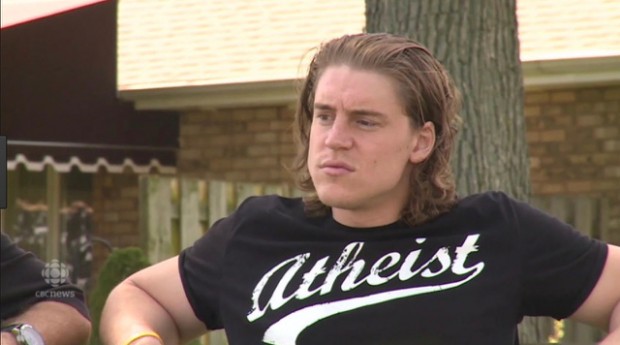April 17, 2017
Tributes flow for Canadian man who lobbied for assisted-dying rights for mentally ill
A Windsor man who urged the federal government to legalize doctor-assisted dying for people like himself with mental illness has taken his own life.
Adam Maier-Clayton’s mother, Margaret Maier, said in a Facebook post she was “devastated” that her “beautiful son” had committed suicide.
“My son has been on a campaign for several years now on the right to die for the mentally ill,” she wrote. “He was in such pain and yet, continued to battle with dignity until the very end.”
Maier-Clayton told CBC News in October that he has battled anxiety, mood disorder and obsessive compulsive disorder since he was a child. He said he was wracked with debilitating pain that felt like he was being burned with acid.

‘My life is a nightmare’: Adam Maier-Clayton wants legally assisted death.
The 27-year-old business school graduate told CBC News the pain was constant but worsened with any kind of cognitive activity like reading and speaking.
“I can’t get through three pages of a book,” he said at the time. “Just to get through the first two would leave me with six hours of pain. I can’t read, I can’t write.”
Maier-Clayton tried a variety of medications and therapy, including antidepressant and anticonvulsant drugs. He also tried counselling and extensive therapy, including experimental ketamine infusion therapy. Doctors said they could find no physical cause for the pain and linked it with his mental illness.
When nothing worked to ease the pain, Maier-Clayton began to agitate, using social media and stories in traditional media outlets, for the right to end his own life, legally and with the assistance of a doctor.
‘Bill C-14 absolutely must be amended so that sufferers of refractory illness (both mental and physical) have the ability to decide for themselves if they wish to continue suffering and enduring their illness or not’.
Canada’s doctor-assisted dying law does not apply to patients with mental illness. The law only applies to adults in an “advanced stage of irreversible decline” facing a “reasonably foreseeable death” from an incurable illness.
In December, the government launched a review of the assisted-dying law that would study, among other issues, whether the law could be broadened to encompass patients suffering strictly from mental illness.
In a Facebook update posted Thursday shortly before his death, Maier-Clayton urged his supporters to watch his videos and he urged the government to amend the assisted-dying law.
“Bill C-14 absolutely must be amended so that sufferers of refractory illness (both mental and physical) have the ability to decide for themselves if they wish to continue suffering and enduring their illness or not,” said the post.
“If not, giving them a dignified, painless way out of their suffering is what we need to do if we wish to truthfully be able to consider ourselves a civilized society.”
Philip Nitschke, founder of Exit International, an end-of-life choices information and advocacy group, issued a statement on Facebook Sunday about Maier-Clayton, who he said was the youngest member of his organization.
“Adam was a strong believer in personal choice, and an advocate for rational suicide, and we had many long Skype arguments over the best ways of ensuring that the needs of younger people are met,” said Nitschke in the statement. “Adam carried out an active and effective social media campaign on this issue, and he urged Exit to continue this campaign after his death.”
Nitschke said there would be a special tribute for Maier-Clayton at the upcoming Exit conference in October in Toronto, where Maier-Clayton had been scheduled to speak.
Maier-Clayton graduated with honours in business from Algonquin College in Ottawa but moved home to stay with his father in Windsor, saying the pain was too much and he needed help.
Graham Clayton told CBC News at the time he used hand signals and gestures to communicate with his son, to reduce the amount of time he spent talking.
“It’s hard,” he said at the time. “You keep hoping the doctors will find something, come up with something. There’s hope after hope, then your hopes are dashed.”
Maier-Clayton told CBC News that “non-existence” was better than living in constant pain and took issue with the government’s contention the law is meant to protect people with mental health issues.
“If someone is suffering for years and years like myself, then what are you protecting them from?” he said. “You’re not protecting them. You’re confining them to pain.”